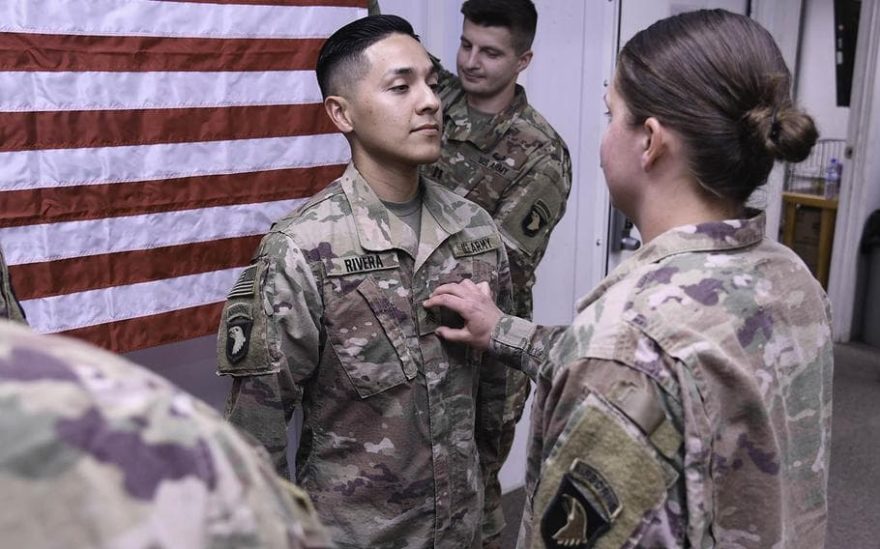The Army Correspondence Course Program (ACCP) is a self-paced, distance learning program designed to provide military personnel with job-related training and education. The program is managed by the Army Continuing Education System (ACES) and is available to all active-duty, reserve, and National Guard soldiers, as well as Department of Army civilian employees.
The ACCP covers various topics, including technical and tactical training, leadership development, language proficiency, and professional development. Courses are available in both print and online formats and can be completed at the student’s own pace.
The mission of the ACCP is to provide soldiers with the knowledge and skills they need to perform their duties effectively and advance in their careers. The program is designed to support the Army’s overall mission of maintaining a highly trained and effective force.
To enroll in the ACCP, soldiers must first meet certain eligibility requirements, including being on active duty or in the reserve component, having a minimum rank of private first class, and meeting certain education requirements. Once enrolled, soldiers can access the ACCP through the Army Learning Management System (ALMS).

ACCP Courses
The ACCP consists of three levels of courses: Foundation, Skill, and Advanced. Foundation courses provide basic knowledge and skills in a particular subject area, while Skill courses provide more advanced training and knowledge. Advanced courses are designed for senior leaders and provide in-depth knowledge and skills in specialized areas.
Some of the most popular ACCP courses include:
- Army Writing Style: This course teaches soldiers how to write in a clear, concise, and effective manner appropriate for Army correspondence. It covers topics such as grammar, punctuation, sentence structure, and the Army’s specific writing style and format.
- Basic Noncommissioned Officer Course (BNCOC): This course is designed for soldiers preparing to become noncommissioned officers (NCOs) and covers leadership, management, and communication topics. It also includes hands-on training in drill and ceremonies, marksmanship, and land navigation.
- Combat Lifesaver Course: This course teaches soldiers the basic medical skills necessary to provide emergency care on the battlefield. Topics covered include treating wounds, controlling bleeding, and administering medications.
- Defense Language Institute Foreign Language Center Courses: The Defense Language Institute (DLI) offers a variety of language courses for soldiers, including Arabic, Chinese, Spanish, and Russian. These courses provide soldiers with the language skills necessary to communicate effectively in various situations.
- Equal Opportunity Leaders Course: This course teaches soldiers how to promote equal opportunity and prevent discrimination in the military. It covers topics such as cultural awareness, sensitivity, and diversity and includes discussions on race, gender, and sexual orientation.
- First Aid Course: This course teaches soldiers basic first aid skills, such as CPR, bandaging wounds, and treating burns. It also covers topics such as triage and emergency response.
- Sexual Harassment/Assault Response and Prevention (SHARP) Training: This course teaches soldiers how to prevent and respond to sexual harassment and assault in the military. It covers topics such as consent, reporting procedures, and victim advocacy.
- Warrior Leaders Course: This course is designed for soldiers preparing to become sergeants and covers leadership, management, and communication topics. It also includes hands-on training in marksmanship, drill and ceremonies, and land navigation.
The Army Correspondence Course Program (ACCP) courses are generally designed for soldiers, including active duty, reserve, and National Guard personnel and Army civilians. However, the specific courses required for each individual will vary based on their job, rank, and career goals. Some courses are required for promotion or certain job positions, while others are recommended for professional development or personal interest. The soldier’s unit or command will typically provide guidance on which courses are required or recommended for them to take.
In addition to the standard ACCP courses, soldiers can earn college credits through the program by completing courses approved for credit by the American Council on Education (ACE). The Army Correspondence Course Program provides soldiers with a valuable opportunity to develop their knowledge and skills, enhance their careers, and contribute to the overall readiness of the Army.

Online Courses
soldiers can take online Army Correspondence Course Program (ACCP) courses. In fact, many ACCP courses are now delivered entirely online, allowing soldiers to access the courses anywhere in the world at any time.
To take an online ACCP course, soldiers will typically need to have access to a computer and an internet connection. Some courses may require specific software or hardware, such as a particular web browser or a headset for listening to audio content. Soldiers should consult the course description or their unit’s training coordinator for specific requirements.
In addition to fully online courses, some ACCP courses may have both online and print-based components. Soldiers can access these courses through the Army Learning Management System (ALMS), the primary platform for delivering ACCP courses. ALMS is a web-based system that allows soldiers to search for and enroll in courses and track their progress and completion.
The Army recognizes the importance of online learning and has made significant investments in developing and delivering ACCP courses through digital channels. This allows soldiers to continue their professional development even while deployed or stationed in remote locations and helps them stay current with the latest trends and technologies in their field.
